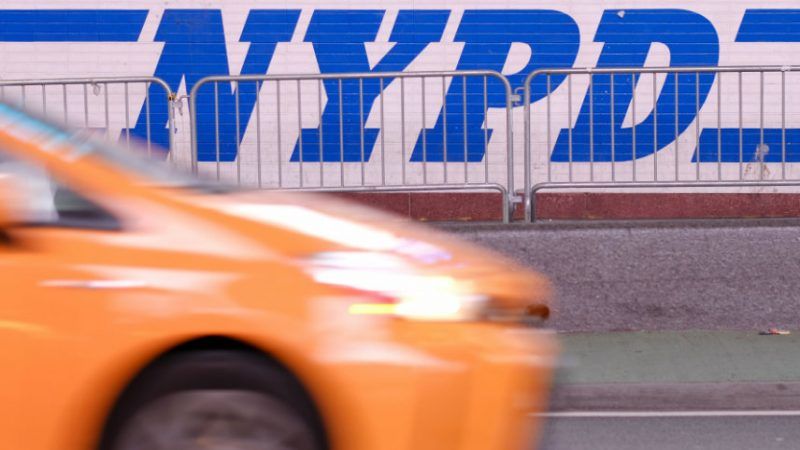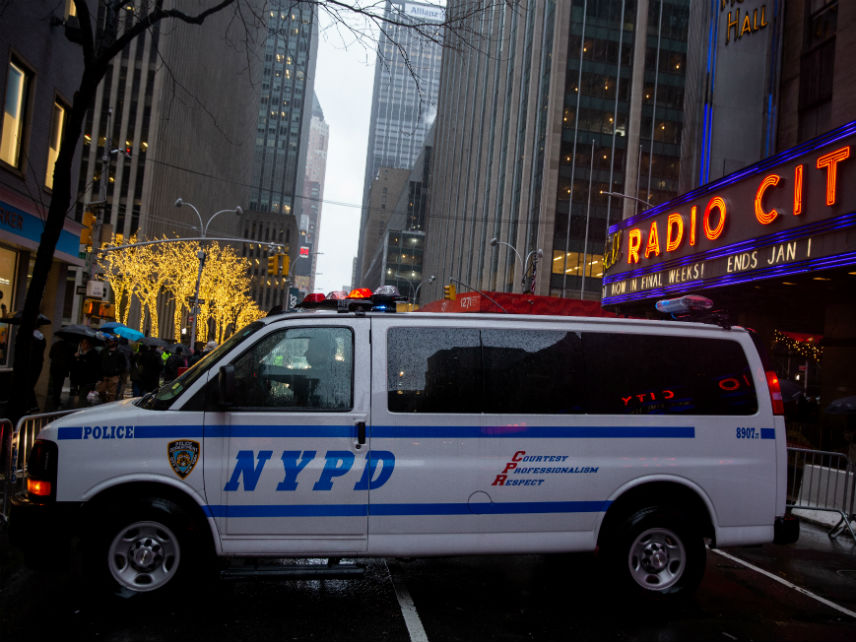NYPD Claims It's the Most Transparent Police Department in the World
In case you needed a good laugh today.


Here's a real thing the New York City Police Department's deputy commissioner of intelligence, John Miller, said Wednesday while testifying before the New York City Council.
"The NYPD is the most transparent municipal police department in the world," Miller said, according to reporter Matthew Chayes.
Now, let the grandeur of that sentence sink in. Marinate in it like a finely seasoned brisket. Rarely on this side of the Democratic People's Republic of North Korea are we blessed with propaganda so divorced from the surly bonds of reality that it sails upward, ever upward, into the realm of surrealism.
I've written about the NYPD's terrible transparency record numerous times. The department has a long and ignominious track record of flouting New York's Freedom of Information Law (FOIL) whenever it feels like it. It then dares media outlets and government watchdogs to sue it, betting correctly that most won't have the resources to make it abide by the law.
"All I can tell you is that the NYPD does whatever it wants to regarding FOI requests," veteran New York cops reporter Leonard Levitt once told me. "Which means they never turn anything over, at least not to me. The only time they did respond was after I got the NY Civil Liberties Union involved."
Levitt's experience is a common one. In 2012, I made a public records request to the NYPD for weapons discharge reports from officers. A state judge had declared those discharge reports public a year earlier, in response to a New York Civil Liberties Union lawsuit. Yet the NYPD first rejected my FOIL request and then—when I appealed, pointing out the court's very clear ruling—simply never responded. The NYPD rejected a similar request from reporter Shawn Musgrave in 2015. It relented on appeal, but then said it would charge him $42,000 to release public records on how and when police officers fired their weapons in the line of duty.
In February, the NYPD rejected a request from the New York Daily News for records on the public and open trial of an officer charged with manslaughter, claiming that its expansive interpretation of officer privacy rules prohibited their release. The NYPD once used the same officer privacy exemption to deny a request I filed seeking records on how many times cops lost their badges or guns, or had them stolen.
There is also an ongoing lawsuit by two Muslim men seeking NYPD surveillance records on themselves. In response to their FOIL requests, the NYPD told them it could "neither confirm nor deny" the existence of those records. The NYPD is now fighting in court for the right to hide the very existence of public records.
The classic "neither confirm nor deny" response, popular among national security agencies, is well-established at the federal level, but it doesn't exist at all in New York state law or in any state court precedent. I wrote extensively about the case in 2016 for Vice.
Or how about last year, when the NYPD abruptly stopped posting summaries of disciplinary hearings against officers, claiming once again that they violated officer privacy?
I could go on. Lord, I could go on, but let me pass the mic. The fine folks over at the news and public records clearinghouse website MuckRock have also collected a number of instances when the NYPD has been, well, less than the most transparent police department in the world, including the time it denied a request for the department's public records handbook.
MuckRock also points out that the NYPD only accepts FOIL requests by snail mail. "A sizable chunk of MuckRock's budget is stamps for requests sent to the NYPD, so until the agency gets on board with the marvels of email, they have no right to call themselves the most transparent police department in New York, much less the world," MuckRock's J. Pat Brown writes.
Miller's statement, by the way, referred to a bill being floated by the city council that would require the NYPD to disclose information on its surveillance technology.
The NYPD opposes the bill.


Show Comments (14)